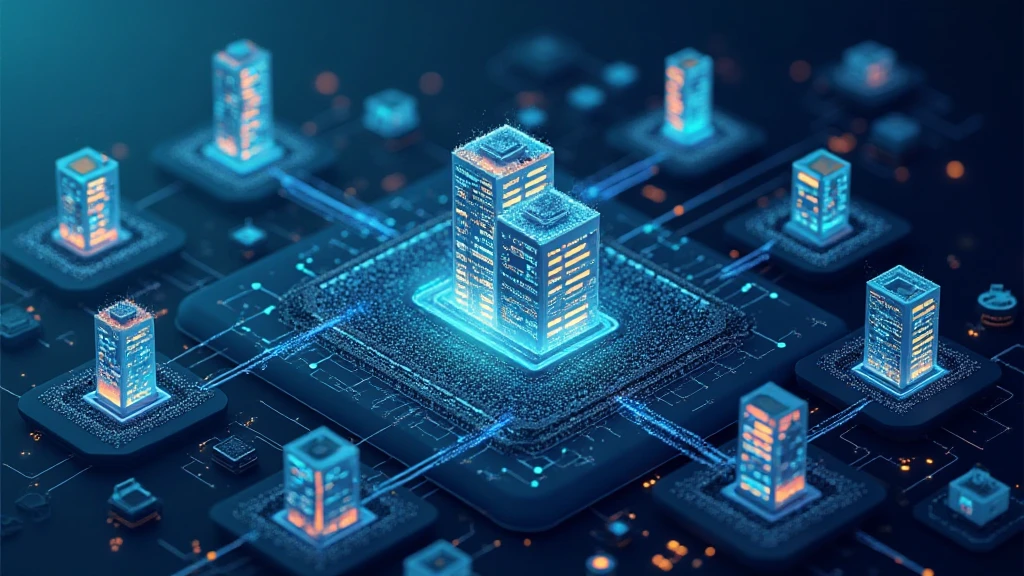Unlocking the Potential of Fractional Real Estate NFT Platforms
In recent years, investment opportunities have evolved significantly, with traditional markets giving way to innovative solutions. One area garnering attention is fractional real estate NFT platforms, which enable investors to buy shares in real estate through non-fungible tokens (NFTs). According to a recent report, the fractional real estate market is projected to grow by over 200% by 2025, aligning with the explosive growth of blockchain technology.
This article delves into the advantages, challenges, and future potential of fractional real estate NFT platforms, presenting an insightful exploration of how they may revolutionize both the real estate and blockchain industries.
Understanding Fractional Real Estate and NFTs
Before diving deeper, let’s clarify what fractional real estate and NFTs entail. Fractional real estate allows multiple investors to own a share of a property, making real estate investment more accessible. On the other hand, NFTs are unique digital assets secured on a blockchain that can represent ownership of tangible and intangible items. When these two concepts converge, investors gain the ability to buy fractional shares of properties with the security and transparency provided by blockchain technology.

The Advantages of Fractional Real Estate NFT Platforms
- Lower Barriers to Entry: Traditional real estate investment often requires significant capital. Through fractionalization, investments can start at a fraction of the cost.
- Enhanced Liquidity: Selling fractional shares of properties via NFTs can offer a more liquid experience than traditional real estate transactions.
- Global Accessibility: Investors from Vietnam to the United States can participate in real estate investments, democratizing opportunities.
- Transparency and Security: Blockchain technology provides a secure ledger for transactions, reducing fraud risks and enhancing investor trust.
Challenges Facing Fractional Real Estate NFT Platforms
While the benefits of fractional real estate NFT platforms are promising, they are not without challenges. Regulatory hurdles and market volatility can impact investor confidence. For instance, as blockchain technology evolves, so do the laws governing digital assets.
Regulatory Landscape
The regulatory environment for real estate NFTs is still developing. Different countries, including Vietnam, are at various stages of implementing regulations for digital asset trading. Compliance with local laws will be crucial for these platforms to thrive.
Wise Investment Practices
- Due Diligence: Investors should understand the properties backing the NFTs and their respective markets.
- Smart Contract Audits: Ensuring that the smart contracts governing the NFT transactions are audited will protect investors from vulnerabilities.
- Market Research: Staying informed about the market dynamics, especially in emerging markets like Vietnam, where the user growth rate is approximately 35% per annum.
Future Trends in Fractional Real Estate NFTs
As we look towards 2025, the present momentum in fractional real estate NFT platforms suggests an exciting future. Expert predictions indicate that these platforms will not only gain traction but will also reshape investor behavior.
Technological Innovations
- Integration with DeFi: The merging of decentralized finance with fractional real estate NFTs could provide additional liquidity and profit-generation opportunities.
- Enhanced User Experience: UX improvements will make it easier for novice investors to navigate these platforms and make informed decisions.
Local Insights: Vietnam’s Emerging Market
Vietnam’s blockchain technology adoption is notable, with its user growth rate surpassing many other countries. As the Vietnamese market embraces digital assets, fractional real estate NFT platforms could offer new investment channels for local investors.
For example, suppose a Vietnamese investor wants to partake in a luxury beachfront property investment in Da Nang. By utilizing an NFT platform, they can own a share of this property without shouldering the entire cost, all secured by smart contracts in a transparent manner.
Case Study
A notable example of a successful fractional real estate NFT platform is HIBT.com, which has successfully executed several funded projects in Vietnam. By exploring the site, investors can learn how fractional real estate can be applied in real-world scenarios.
Moreover, with local regulations being shaped around digital assets, the future looks bright for investors in this landscape.
Conclusion: The Road Ahead for Fractional Real Estate NFT Platforms
As we navigate through the complexities and opportunities of fractional real estate NFT platforms, it’s clear that their potential is vast. With lower barriers to entry and the integration of blockchain technology, we can anticipate a shift in how investors approach real estate. However, they must remain vigilant about the risks associated with this emerging trend.
In essence, fractional real estate NFT platforms are on a trajectory to redefine the real estate investment landscape, offering innovative pathways that align with the rapid global growth of blockchain technology. Investors who adapt and embrace these changes may find themselves significantly ahead in the market.
For those interested, remember to do thorough research and seek expert advice. As with any investment, it is crucial to keep informed and prepared. Not financial advice. Consult local regulators for guidance.
Author: Dr. Julian S. Oakwood, a leading expert in blockchain technologies with over 15 published papers in renowned journals and experience overseeing major NFT audit projects.





